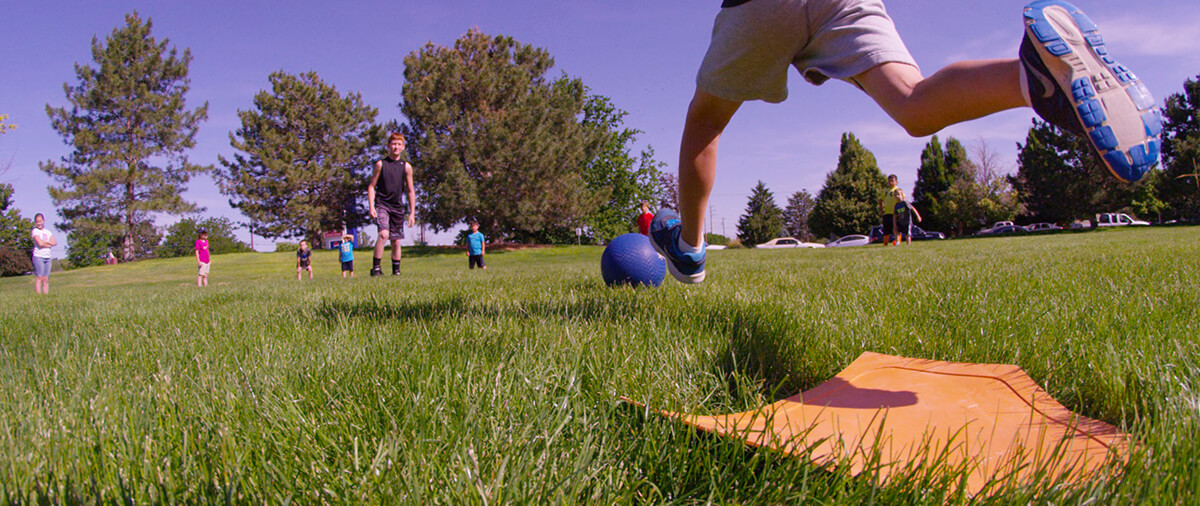 For decades, there has been a clear divide between philanthropists and the organizations they fund.
For decades, there has been a clear divide between philanthropists and the organizations they fund.
The philanthropists’ job was to provide funding.
The nonprofits and other organizations receiving the funding would then put these resources to work making change in their communities.
This traditional approach, while still powerful under many circumstances, has limitations. For starters, it pigeonholes philanthropists into the very limited role of funder, prohibiting them from fully leveraging their connections, knowledge and operational expertise. And for fundees, this system can leave them in an unsustainable cycle of transactional grant applications. If they get the thumb’s up (including immediate funding), all is well. But if they don’t, great programs can find themselves cut short.
An effective alternative — and the approach embraced by the Blue Cross of Idaho Foundation for Health — is catalytic philanthropy. Under this methodology, funders take a much more hands-on approach to making the change they hope to see. They don’t just write checks and walk away. In the case of our Foundation, we get involved up front with technical expertise to help potential grantees clarify their objectives, strategies and tactics. We work closely with them to ensure the necessary local partnerships are in place. And where it makes sense, we make introductions to other organizations that we think can help.
Sometimes much of this happens before any significant funding is provided. Other times, these steps are built into the grant itself. Either way, this level of integration is critical because catalytic philanthropy is generally a much longer-term effort than most traditional philanthropic efforts. While traditional grants often only fund work for a month or year, catalytic philanthropy initiatives typically last several years or longer.
Transformational Change
 At the Blue Cross of Idaho Foundation for Health, our goal is to light a spark that will create transformational change not just today, but for generations.
At the Blue Cross of Idaho Foundation for Health, our goal is to light a spark that will create transformational change not just today, but for generations.
This is what catalytic philanthropy is all about.
Take, for example, our High Five Community Transformation Grants. These multi-year grants provide up to $250,000 in funding to cities to help them initiate projects that improve the health of children by increasing their physical activity and access to healthy, affordable foods.
The simple fact is, the type of systematic change we’re trying to illicit will ultimately cost much more than the original grant funds. So while this funding alone can’t change everything, it can — especially when paired with the Blue Cross of Idaho Foundation for Health’s expertise and connections — inspire communities to come together for the sake of their kids.
Receiving the grant (and even just applying for the grant) can ignite a tremendous movement that rallies local families, business people, and civic leaders to mobilize to take action. From the beginning, the Foundation brings them together to facilitate community discussions, define priorities, and develop an action plan. Because this plan usually spans many organizations and individuals, we often bring in — or introduce them to — experts who help them execute on their vision. Through these efforts, communities develop infrastructure, programs, policies and partnerships that will positively impact the well-being of their citizens for decades.
The impact of this usually dwarfs our original investment, which is simply a spark. A spark that gives them focus. That helps them think big. And notably, that helps them earn additional money and resources. Last year, for instance, Community Transformation Grant recipients received an additional $7 million in cash and services sparked by the initial funding.
This is catalytic philanthropy in action.
At first glance, a Community Transformation Grant may look like traditional philanthropic funding. But if you look closer, you will see catalytic philanthropy requires a different mindset, different skills and a different approach.
Most importantly, the goal — to solve the root causes of Idaho’s most pressing health issues — remains the same. And we believe catalytic philanthropy is the best way to get us there.